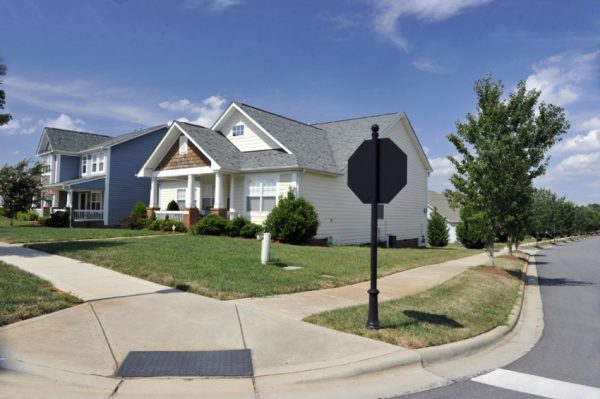Bill to limit local zoning powers: Two views

The N.C. House is scheduled to vote this afternoon on a bill, “Zoning/Design & Aesthetic Controls,” (House Bill 150) that has enthusiastic support from the state’s home-building industry but that gravely concerns planners around the state, as well as some local elected officials. (Update: The N.C. House on Tuesday passed the bill 94-22 on second reading, and on Wednesday passed it on a third and final reading. Action now moves to the N.C. Senate.)
We offer two opposing opinions about the bill:
“House Bill 150 deserves our support” by Joe Padilla of Charlotte’s Real Estate and Building Industry Coalition.
“Bill would shut down community choice” by Ben Hitchings, president of the N.C. Chapter of the American Planning Association, and planning director for the Wake County town of Morrisville.
The bill forbids local zoning ordinances from specifying such things as the location and styling of doors (including garage doors) and windows, or other “building design elements” such as roof style or materials, porches, exterior material (such as brick, or vinyl siding) or building color.
|
Calling it a “dire emergency,” Wake County mayors held a news conference Monday to warn communities about House Bill 150. See the article. |
The bill applies only to residential buildings – single-family or duplexes – and would not apply in local historic districts or areas listed on the National Register of Historic Places, or to historic landmark buildings.
The Senate version of the bill, Senate Bill 139 was introduced Feb. 26 and passed the Senate on first reading the next day. It’s in the Commerce committee.
Several N.C. cities and towns have stipulations in ordinances about windows and doors; some forbid vinyl siding, for example. The Town of Davidson currently requires garage doors not to project forward from the front face of the house – a style known informally as “snout house” – which the town believes isn’t pedestrian-friendly. Cary has a similar provision.
Homebuilders counter that state law simply doesn’t allow municipalities to make those sorts of requirements, and that homebuyers and builders, not local government, should make those kinds of decisions.